A link between poor diet and brain health and depression has been well established. The brain needs vital nutrients to reach its state of optimization. But what nutrients exactly should you be eating to fight depression? And how exactly can you prioritize your diet when it’s hard to just get dressed in the morning?
Have you ever heard the phrase-
“Genetics load the gun, environment pulls the trigger”?
This is a clear representation of the complex relationship between disease and lifestyle.
When working through nutrition to recover or prevent depression it is important to recognize that stress cannot be ignored. The higher your stress level by attempting to each a perfect brain health diet will override the nutrient benefit from the food itself.
That being said, consider the good-better-best reality of all of these items.
While wild-caught sockeye salmon and scallops may be a “best” option, it’s difficult and expensive sourcing, this may not be your “best” option. Possibly the frozen, vacuum sealed farm raised salmon may be your personal best option.
Salmon has valuable Omega 3 regardless if it came right from the fisherman, or from the canned fish aisle. Onto the list of the ten best nutrients to fight depression. This list was inspired by Genius Foods by Max Lugavere
Related: Do I need to go gluten-free for my mental health?
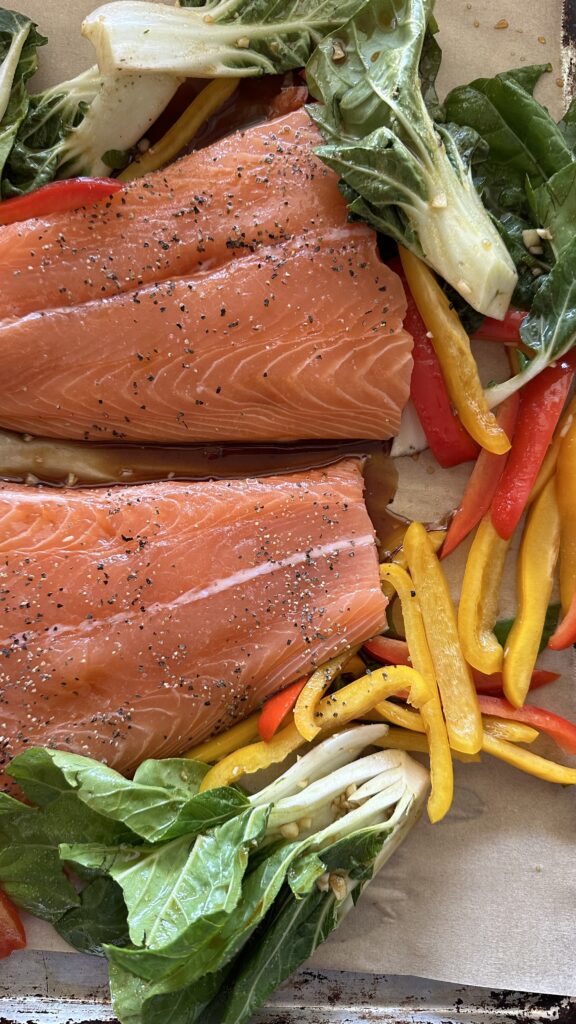
10 Nutrients you need to fight depression:
1. Fatty fish
Sources like salmon, herring, mussels, tuna or anchovies are rich in the valuable brain food Omega 3. Omega 3 is polyunsaturated fats that are important for brain health. In fact, the brain prefers sources of fat for fuel opposed to sugar/carb sources. This is why low-fat diets are not recommended for overall brain performance.
Most trials show a correlation, and many conclude that omega-3 supplementation may reduce the symptoms of depression and/or anxiety. To get Omega 3 from the foods we eat, the body must convert ALA to EPA + DHA (anti-inflammatory) which is best done through seafood opposed to nuts + seeds.
2. Quality red meats
Beyond the rich protein that these meats contain, they also are an essential source of minerals like zinc and iron and are easily used by the body from whole food form (unlike a supplemental form). Grass-fed meats also include Omega 3s, B12 and vitamin E. Dr Felice Jack found that women who didn’t eat beef at least 4x a week were twice as likely to experience depression.
Also note: Well sourced organ meats take these levels to a higher standard where you are able to consume higher amounts of these valuable vitamins and minerals in a much smaller source.
Try out these Baked BBQ Meatballs
3. Extra-virgin olive oil
I recently had someone tell me that all food should be used as a tool to get EVOO in your body. While I appreciate his enthusiasm, he also isn’t too far off base. Quality EVOO contains a phenol (oleocanthal) that possesses such a strong anti inflammatory effect that is compared to taking a low dose of Ibuprofen. You’ll know your olive oil is rich in oleocanthal when you feel that spiciness at the back of your throat. When consuming EVOO, raw is best- however a light heat may be appropriate as well. High heat damages the oil and eliminates those nutrients you are trying to source.
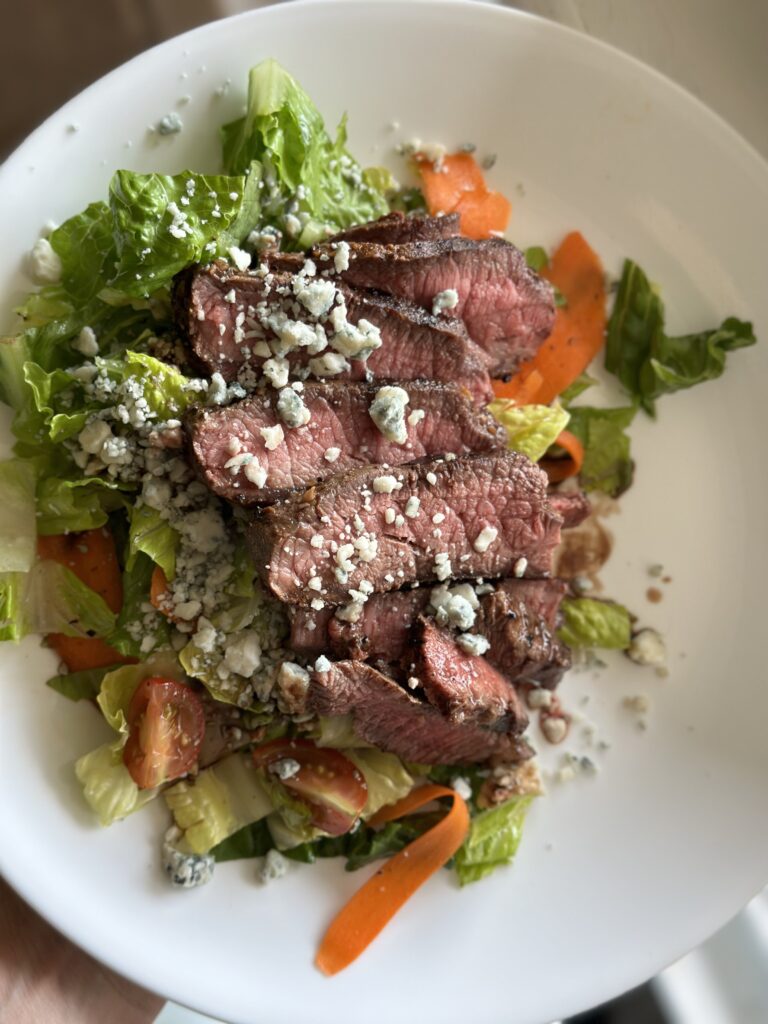
4. Leafy greens and cruciferous vegetables like broccoli, Brussel sprouts, radishes etc.
Both low in sugar and rich in vitamins and minerals these veggies also contain phytonutrients your brain desperately needs to function well. Folate specifically, is making is now being known for it’s involvement in brain health and responsibility in detoxification and proper gene function.
Try out these Hot Honey Air Fried Brussels Sprouts
5. Whole grains or other high fiber foods
Whole grains are an important source of energy, while also being high in fiber. Fiber rich foods help the body to detox through elimination while also feeding the bacteria in your gut and the healthier your gut, the healthier your brain.
Related: Top 10 high fiber snacks on the go
Try out this Perfect Homemade Granola
6. Dark chocolate
While being a source of magnesium, it also is a naturally fermented food and contains many flavanols (another type of phenol). Phenols work as an anti-inflammatory to reverse cell damage. Chocolate of at least 80% cocoa would be your best sourcing here, because unfortunately – sugar is no brain food.
Related: How to bake healthier: 9 essentials for your baking cupboard
7. Eggs
Eggs are a valuable source of vitamin A, B12, E, zinc, choline and others that make it an incredible food for optimizing brain function. Soft centered eggs not only taste better, but the valuable fats in the yolk aren’t damaged through the cooking process- remember the brain LOVES fats.
Try out this easy Tomato and Sausage Skillet Frittata
9. Yogurt, or other probiotic rich foods.
A healthy gut, is a healthy brain. Probiotic rich foods like kimchee, sauerkraut, fermented vegetables or kombucha promote a healthy village of vital gut bacteria that is linked to brain performance. Your gut might be more connected to your depression or anxiety than you realize. Medicine in the past would view the digestive system as separate from the brain. However we are now learning that these are closely connected through the concept of the gut-brain access. This topic, while fascinating- is hard to explain succinctly. Here is a more in-depth look at the gut brain connection.
Related: How to improve your gut health
10. Anti-inflammatory foods like blueberries, turmeric, and green tea
Did you notice the trend? A lot of talk of inflammation and the gut. Because, with a highly inflamed body or gut- your brain will never reach its potential. When you can’t concentrate to write that email, or you keep forgetting things… these are two pieces I need you to remember. Lower the inflammation, improve the state of the gut and watch your cognition improve.
Smoothies can be a great way to tie these nutrients together. In fact, when I was in the worst of my sickness, my husband would portion out for me a bowl of anti inflammatory foods that I sucked down religiously. While neither of us can remember the recipe exactly, it was a combo of raw ginger, greens, avocado, sprouts or seed, and blueberries. I have to be honest, I really didn’t love it at the start- and I only got more sick of it as time went on. However, I still believe it played its wn role aiding in my recovery.
If you found yourself interested in more elements of diet + mental health relationship- I’d recommend you consider a Mediterranean eating pattern.
The Mediterranean eating pattern unintentionally is rich in foods vital for mental health while limiting or eliminating foods known to decrease brain function.
If you liked this post but want more tips for depression recovery- Check out one of my most popular posts: Self care for depression: 10 things you need to try
You don’t have to keep DIYing your health. Schedule a call to learn how personalized nutrition cuts through the noise to get you from symptom chaos to restoration with clear steps and guidance.
Always,
Leana
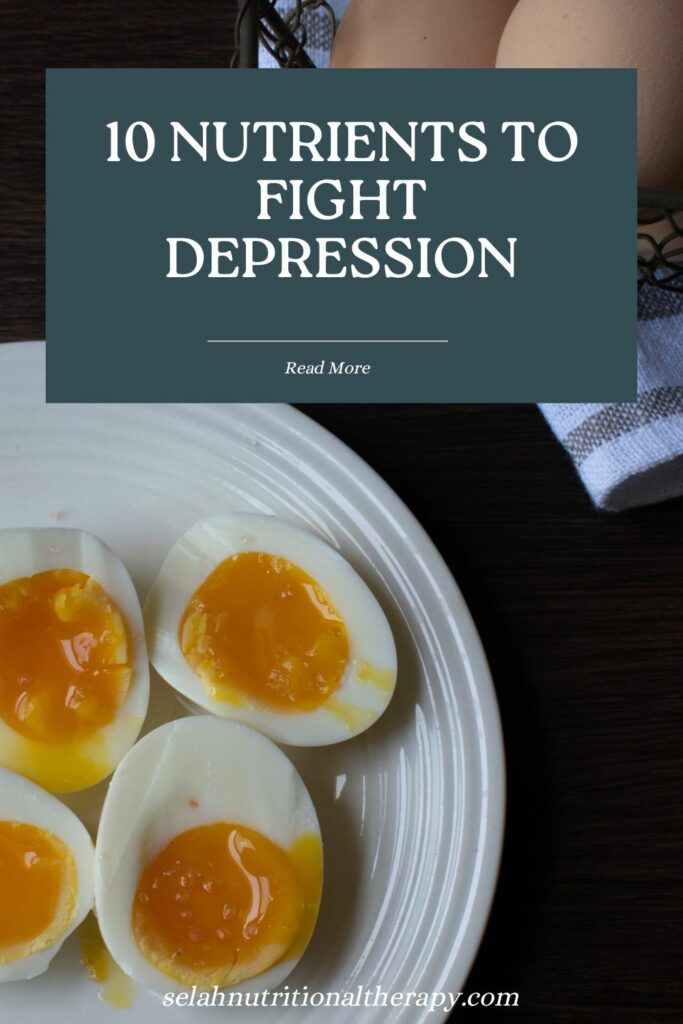
*This post may contain affiliate links, which means I may receive a small commission at no extra cost to you. I do not recommend products that I have not personally vetted.*
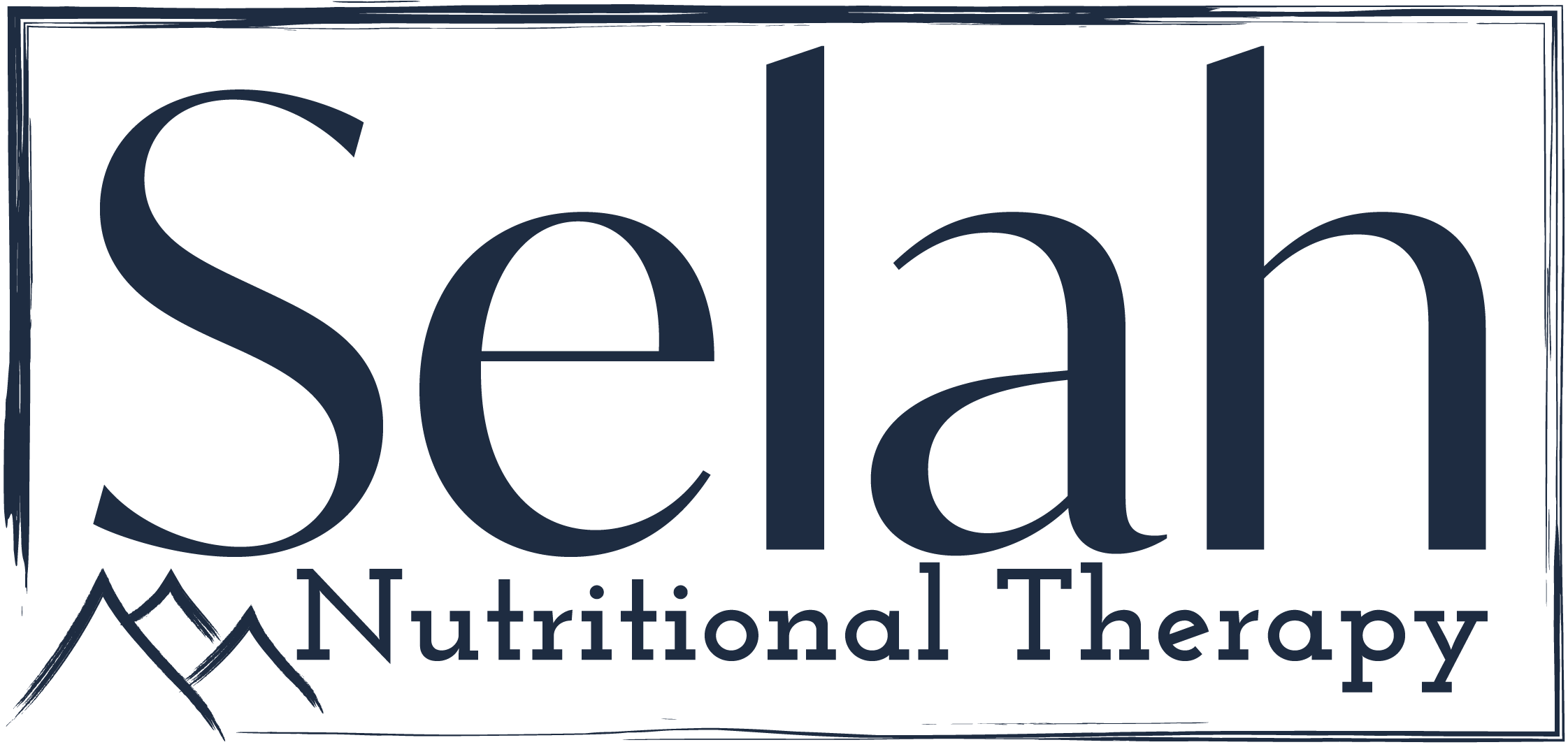
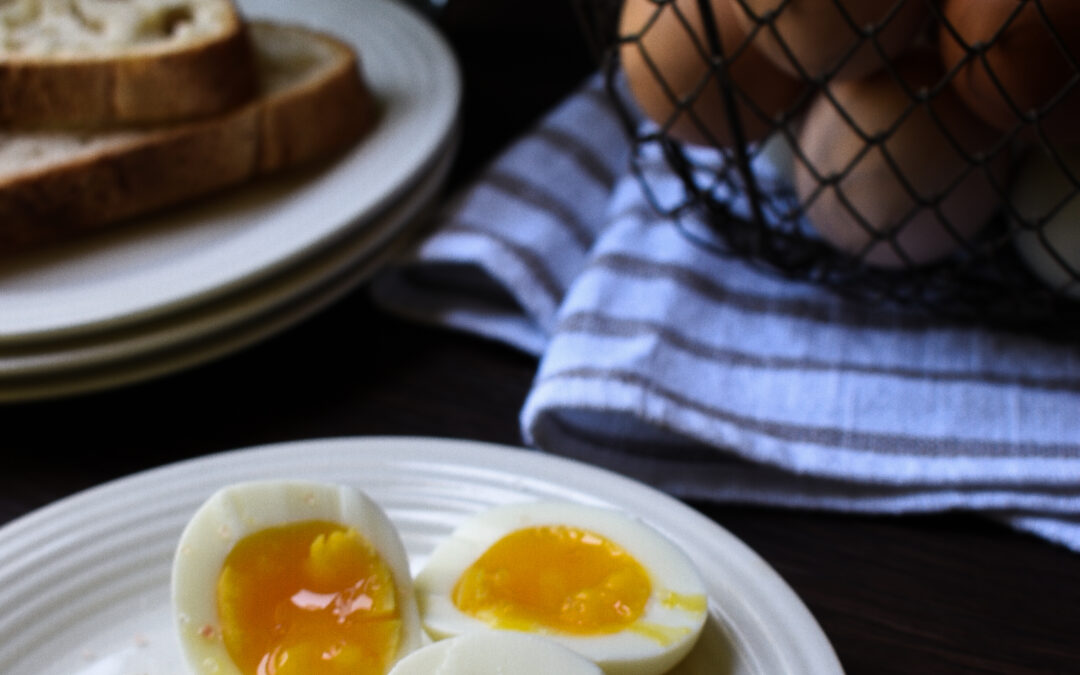

Love the information! Great article!
Thank you for reading!